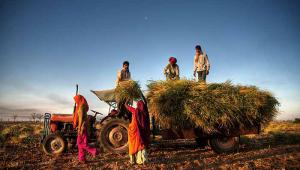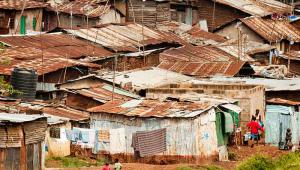But progress has been made in ensuring more people have access to electricity in developed countries and industrial energy efficiency, a new report by five agencies have said.
Renewable energy has made “impressive gains” in the electricity sector, though these are not matched in transportation and heating, which together account for 80% of global energy consumption, the report said.
The agencies said recent national experiences showed “encouraging signs”.
Riccardo Puliti, senior director for energy and extractives at the World Bank, said: “The experience of countries that have substantially increased the number of people with electricity in a short space of time holds out real hope that we can reach the billion people who still live without power.”
“We know that with the right policies, a commitment to both on-grid and off-grid solutions, well-tailored financing structures, and mobilisation of the private sector, huge gains can be made in only a few years. This in turn is having real, positive impacts on the development prospects and quality of life for millions of people.”
Based on current policies, the renewable share is expected to reach just 21% by 2030, with modern renewables growing to 15%, falling short of the substantial increase demanded by the SDG7 target, the report said.
The report pointed out that one billion people, 13% of the world’s population, live without electricity. Sub-Saharan Africa and Central and South Asia continue to be the areas of the world with the largest access deficit.
Nearly 87% of people without electricity live in rural areas.
Bangladesh, Ethiopia, Kenya and Tanzania have all increased their electricity access rate by 3% or more annually between 2010 and 2016. Over the same period, India also provided electricity to 30 million people annually.
The report, Tracking SDG7: The Energy Progress, was launched at the Sustainable Energy for All Forum last week. It was published by the World Bank Group, World Health Organization, the International Renewable Energy Agency, the United Nations Statistics Division and the International Energy Agency.
Rachel Kyte, special representative of the UN secretary-general and CEO of Sustainable Energy for All, said: “As we take stock of progress towards the global goal on sustainable energy, this latest data clearly shows more action and political leadership is needed if we are to live up to our promise to leave no one behind.”
“To meet 2030 targets, we must make every unit of energy work harder. We need to increase investment in the technologies and business models that make electricity access affordable for everyone, place even bigger bets on the remarkable capacity of renewable energy and build big markets for clean fuels and cooking access. World leaders put the promise of leaving no one behind at the heart of the Sustainable Development Goals, and now is the time for that promise to become reality.”
The report also found that three billion people do not have access to clean cooking fuels and technologies.







